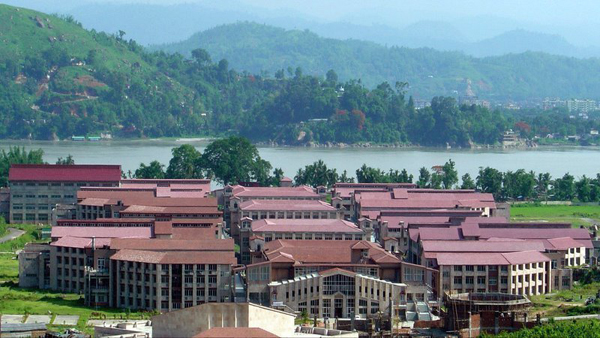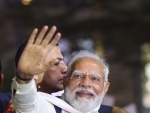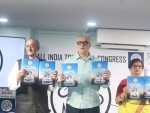
Assam: A Threat Crystallizes
A day earlier, on October 8, 2014, four militants of the NDFB-IKS, including a 'section commander' were killed in Kokrajhar District after a fierce encounter with a joint team of the Police and the Army. The SFs recovered a cache of arms and ammunition, including one AK-56 rifle, one AK-56 magazine, 20 live rounds of ammunition and three pistols.
On September 28, 2014, four militants of the NDFB-IKS, including one 'second in command', were killed in an encounter with a joint team of the Police and the Army at Mwinaguri under Serfanguri Police Station in Kokrajhar District. All the deceased militants were from the Mwinaguri section of NDFB-IKS. An AK-56 and a magazine with 20 rounds, two 7.65 mm pistols, one 9mm pistol, three grenades and incriminating documents were recovered from them.
These recent setbacks notwithstanding, the NDFB-IKS appears to be consolidating its position as the most active insurgent group in Assam. The group was responsible for the May 1-3, 2014, killings of 46 Bodo Muslims in Baksa and Kokrajhar Districts of the Bodo Territorial Autonomous District (BTAD) area. It subsequently emerged that senior leaders of the NDFB-IKS, including 'chairman' I. K. Songbijit, 'general secretary' Swarangra and 'commander' B. Bidai had orchestrated the attacks.
According to partial data compiled by the South Asia Terrorism Portal (SATP), Assam has recorded 193 insurgency-linked fatalities, including 95 civilians, five SF personnel and 93 militants, in the current year, as of October 10. Significantly, NDFB-IKS has been responsible for 65 of the 95 civilians killed this year. Some other major incidents of civilian killing by NDFB-IKS include:
July 11: NDFB-IKS militants abducted four traders. The dead body of one of the abducted traders was recovered from Kamargaon in Barpeta District on July 12, while the bodies of the other three were recovered from the banks of the Manas River in Baksa District on July 13.
January 17: Six persons were killed when suspected NDFB-IKS militants pulled out about a dozen persons from a bus and opened fire at them at Serfanguri in Kokrajhar District.
In an extraordinarily barbaric incident, the NDFB-IKS, on August 22, 2014, released the video of the execution of a Class10 student identified as Priya Basumatary, at Dwimuguri in Chirag District on August 20, 2014, whom they suspected to be a 'Police informer' and whose 'information' allegedly led to the killing of five of its cadres on August 20.
NDFB-IKS was also involved in one of the most significant of five SF fatalities in Assam in 2014 (as of October 10). The militants killed Sonitpur Additional Superintendent of Police Gulzar Hussain and an alleged Police informer when they ambushed a patrol at Thalola in the Batachipur area in Sonitpur District on January 28. Five constables were also wounded in the ambush. NDFB-IKS was also involved in at least another three attacks on the SFs in 2014.
Further, out of the 93 militants who have been killed in Assam in 2014 (as of October 10) in 53 incidents, 38 militants belonged to NDFB-IKS, and were killed in 23 incidents. In 2013, a total of 60 militants were killed in 43 incidents in Assam, of which 20 militants were from NDFB-IKS, and were killed in 14 engagements with the SFs. The other major incidents of 2014 in which NDFB-IKS suffered at the hands of the SFs include:
August 20: Five NDFB-IKS militants, identified as 'military secretary section commander' C. Rwikha, alias Rajib Sumpramary , 'section commander' M. Rojong, alias Roslin Mushahary, B. Raidwng, alias Raju Basumatary, 'personal security officer' of C. Rwikha Debanand Islary, were killed in an encounter with a joint Police and Army team in the jungles of Raimati Chirang District. SFs recovered An AK series rifle, five pistols, six magazines, five grenades, 226 live rounds of ammunition, 10 empty cartridges and INR 551,000. The NDFB-IKS later accused the Ranjan Daimary faction of NDFB (NDFB-RD) of being involved in the killings, but the RD faction denied this.
April 30: Three suspected NDFB-IKS militants were killed in an encounter with the Police in the Naojan Tinkhuti area under Gingia Police Station in Sonitpur District.
The NDFB-IKS was formed on November 20, 2012, after an announcement by the then NDFB-RD's Myanmar based 'army chief' I.K. Songbijit, about the formation of a nine member 'interim national council', following a November 13-14, 2012, meeting where a vow to 'liberate Bodoland and Western South East Asia (North East India)' was taken. Since the split, the IKS faction has become the most violent insurgent group in Assam, engaging in multiple incidents of killing, abduction and extortion across the BTAD areas.
According to partial data compiled by SATP, there have been 31 incidents of arrest from January to October 8, 2014, in which 61 militants of NDFB-IKS were arrested. In 2013, there were a total of 29 incidents of arrest, in which 72 NDFB-IKS militants were arrested.
Since the tightening of Counter Insurgency (CI) operations against the group, NDFB-IKS has also changed its tactics, progressively 'outsourcing' criminal activities, such as extortion and abduction to other organizations. One such 'franchise' is a new Nepali group, the United Gorkha People's Organization (UGPO), as was discovered after five members of UGPO - Bashu Chetry, Nabraj Koirala, Netra Bahadur Ghaley and Dhiraj Majhi and Bhagat Sarki - were arrested at Matijhora in Kokrajhar District on September 13, 2014. A Defence Spokesman disclosed that NDFB-IKS was outsourcing activities such as kidnapping and extortion to these individuals.
It is significant that, in mid-August this year, the NDFB-IKS cadres had moved north from the Parbatjhora sub-division towards the Indo-Bhutan border, due to heightened combing operations and the neutralisation of self-styled 'section commander' B. Geremsha on July 21. UGPO militants might have been used by NDFB-IKS to fill the void, to continue their activities without attracting the attention of SFs, as inhabitants of Matijhora and adjoining villages are Nepalese. The Kokrajhar Police further stated that around 26 Nepali boys were trained at a camp in Myanmar by NSCN-IM about two years ago and joined NDFB-IKS after returning.
The success of the CI strategy employed by the SFs is further evidenced by the trend in surrenders. 29 NDFB-IKS cadres (out of a total of 50 surrendered militants in Assam) surrendered in the year 2014 (till October 10).
Crucially, according to the SATP database, Assam has been the most violent State in the North East this year, with a total of 193 fatalities [95 civilians, 5 SFs, and 93 militants] in 2014 (till October 8).
Although the SFs have been able to exert pressure on NDFB-IKS, severely denting its operational capabilities, the group persists with violence at a significant scale. Operational pressure by the SFs is unlikely to be sustained indefinitely, particularly against the backdrop of myopic political settlements with various insurgent factions that have lead to a fissionary process across the Northeast, creating a multiplicity of splinter groups.
Worse, as long as poor political management, the abiding neglect of the basic needs of large segments of the population, unchecked illegal migration, and the polarisation of various ethnic and religious communities continue to mar Governance in the region, the cycle of militancy will not end, though it may suffer periodic reverses. Moreover, as long as the insurgent groups have safe havens across the border in countries such as Myanmar and Bangladesh, and the flow of weapons is not stopped, the insurgent problem cannot be expected to wither away.
(Opinion expressed is of the writer and not of IBNS)
Support Our Journalism
We cannot do without you.. your contribution supports unbiased journalism
IBNS is not driven by any ism- not wokeism, not racism, not skewed secularism, not hyper right-wing or left liberal ideals, nor by any hardline religious beliefs or hyper nationalism. We want to serve you good old objective news, as they are. We do not judge or preach. We let people decide for themselves. We only try to present factual and well-sourced news.







